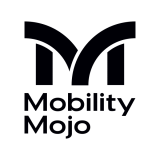We’re a very unique bunch here in Newcastle. You’ll meet all manner of characters in our pubs, shops and walking along the street and it’s our friendly attitude and humour that makes us stand out from the crowd. One of the things that tells us apart from the rest of the UK is our Geordie accent, language and dialect which is sometimes indecipherable to visitors. Here is our quick guide to help get you speaking like a true Geordie.
The Geordie Accent
The Geordie dialect is heard in north-east England in communities around the River Tyne (Tyneside), such as Newcastle and Gateshead. It is distinct from other popular UK accents, making us quickly recognisable to those in the know. Distinguished by its often musical tones and peculiar words some of our more unusual phrases and words come from the ancient languages of Germanic and Scandinavian Europe. Some well-known Geordies, who are proud of their accent include Cheryl Cole, Little Mix singers Perrie Edwards & Jade Thirlwall and presenters Ant & Dec. Our popular sayings and phrases have been immortalised in classic TV shows such as Auf Wiedersehen, Pet and more recent shows like Geordie Shore.
How to imitate a Geordie Accent
While we like to think of our unique accent as inimitable, but we’ll give you a few tips to make sure you at least have the basics right. Before attempting to learn our more unusual phrases, it’s better to practise the ones you already know with a Geordie accent. Some of the popular characteristics of our very unique dialect include:
• Words ending in -er often sound like an ‘a’ sound – so brother sounds like brotha
• At the end of a word, the usual -ing sound is pronounced -en – so talking become talken
• In words like crown, the ‘ow’ sound is pronounced ’oo’ – crown sounds
like croon and know sounds like new.
• /ɛ/ often becomes /i/, especially in words spelled with ea like head – head sounds more like heed.
One of the biggest tells of a Newcastle accent is our use of the ‘glottal stop’; in layman’s terms, we drop the T sound in the middle of words, replacing it with a hard pause. Therefore ‘water bottle’, making it sound like wa’er bo’le.
Geordie Slang
In addition to our very distinct pronunciation, grammar and expressions, Geordie English has a distinctive vocabulary, that might sound like nonsense to those unfamiliar! There are so many words we have adapted or completely replaced, some of which sound nothing like the original. We’ve listed some of the most popular, but this is just the tip of the iceberg!
Aye – yes
Knackered – tired
Laddie – boy
Lassie – girl
Propa – very
Belta – really good
Bairn – child
Class – good
Toon – town
Owa – over
Reet – right
Nowt – nothing
Geordie sayings
A saying coming directly from the toon, and one that is often overused by imitators is “Wey-Aye”. It is used as a general term of positivity or agreement. To put a little kick behind it you can add man or to soften it, add pet to the end. Use it anytime you want to agree with someone without resorting to a boring “yes”.
‘Canny’ originates from the phrase “Canny bag o’ Tudas” a popular 1980s North East-manufactured crisp brand, Tudor Crisps, used as part of a TV advert. It has evolved through generations and is now used to indicate any experience which is generally pleasant or enjoyable, regardless of whether it relates to food or not. You’ll often hear us say ‘gan canny, man”, used to say goodbye, take care or take it easy.
Belta is another term meaning something is excellent. Belta is the Geordie form of belter used to mean “impressive” or “exceptional” since the late 19th century. It comes from belt, meaning “a heavy blow or punch”, in the sense of something literally being “strikingly” brilliant.
The best way to learn how to speak like a true Geordie is to visit our gorgeous city for yourself. Our short term let apartments Newcastle are ideally located in the heart of the city, perfect for exploring and meeting locals in shops, pubs and restaurants. Book your stay using our official website or by contacting our friendly team today.









